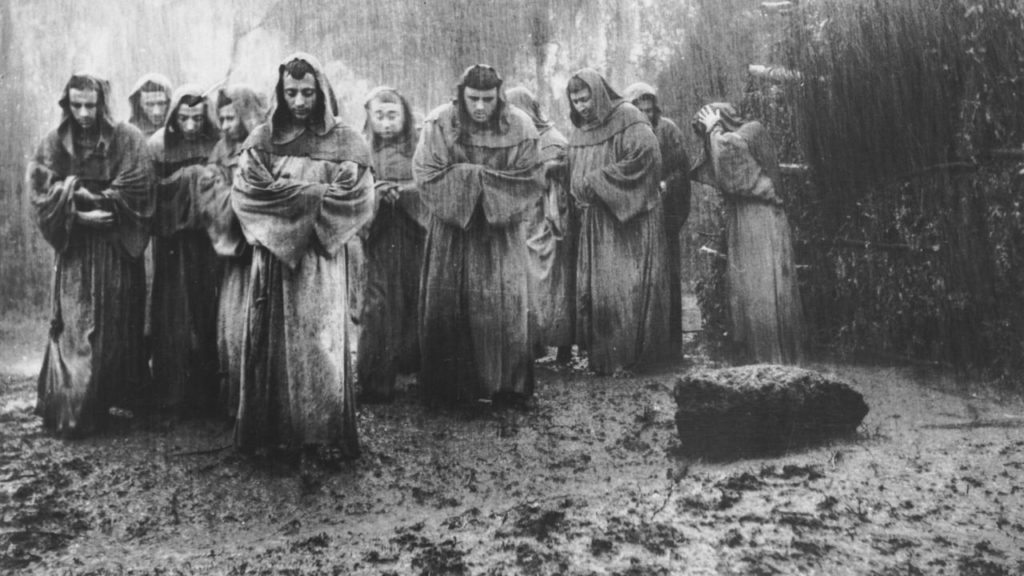
In keeping with the Italian neorealist precept of casting non-professional actors in suitable roles, Roberto Rossellini went to the Franciscan friars of the Nocere Inferiore monastery in Rome to cast St. Francis and his followers in this delightful cinematic meditation on the Little Flowers of St. Francis. Despite the Italian title (Francis, God’s Jester), it is Francis’ followers, especially Brother Juniper, who are foolish jesters trying to follow in their master’s footsteps—but they are also joyful and free, and even materialistic moderns may recognize here something lacking in our desacralized age.
Yet Rossellini doesn’t cater to contemporary sensibilities by reinventing Francis as a mere eccentric free spirit. Francis remains challenging to modern audiences, his childlike spirit joined to insistence on strict religious obligation and zeal for evangelization. All three principles converge with sublime perfection in the delightful climactic episode in which Francis commands his followers “under holy obedience” to spin around “like children at play” until they collapse from dizziness, at which point they must strike out in whatever direction they are facing to preach the gospel.
The episodic film makes no attempt to cover Francis’s early life and conversion, or his reception of the stigmata and his death. Instead, the film focuses, in Rossellini’s words, on “the merrier aspect of the Franciscan experience, on the playfulness, the ‘perfect delight,’ the freedom that the spirit finds in poverty, and in an absolute detachment from material things.” The fruit of Rossellini’s efforts is a beautifully simple little film that is as much a tribute to the spirit of humane curiosity in which the film itself was made as to the spiritual heritage that is its transcendent theme.
—Steven Greydanus (2011)
- Directed by: Roberto Rossellini
- Produced by: Angelo Rizzoli
- Written by: Roberto Rossellini Federico Fellini Félix Morlión Brunello Rondi
- Music by: Renzo Rossellini
- Cinematography by: Otello Martelli
- Editing by: Jolanda Benvenuti
- Release Date: 1950
- Running Time: 85
- Language: Italian
Arts & Faith Lists:
2005 Top 100 — #29
2006 Top 100 — #20
2010 Top 100 — #55
2011 Top 100 — #33
2020 Top 100 — #16